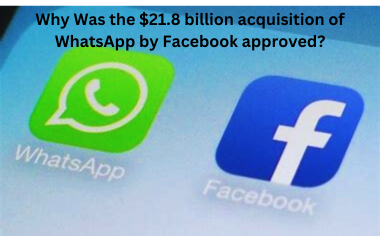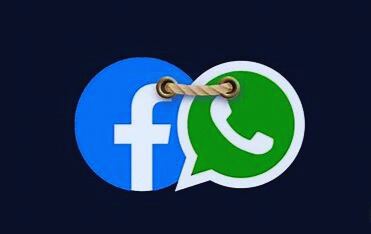Why Was the $21.8 billion acquisition of WhatsApp by Facebook approved?
One of the biggest tech purchases in history, Facebook announced in February 2014 that it had paid an astounding 21.8 billion Regulators from all around the world approved the sale in spite of the high price and attention it received. This essay explores the complex factors that led to this historic acquisition’s acceptance.
Due to the increasing value of Facebook shares, Facebook has completed the acquisition of the mobile messaging service WhatsApp for about $22 billion, up from the initial $19 billion when the coins-and-inventory deal was made early this year.
On Monday, Facebook appointed Jan Koum, the CEO and co-founder of WhatsApp, to the board. By a wide margin, WhatsApp is the Menlo Park, California agency’s largest acquisition to date, surpassing any approaches from Google, Microsoft, or Apple.
When the buyout was announced on February 19, the amount Facebook was willing to pay caused some controversy, but observers concurred that acquiring the popular website was a worthwhile experience. The purchase, which includes restricted shares, cash, and stock granted to WhatsApp employees, is nicely valued at $21.8 billion based on Facebook’s.
NEW YORK (AP) — Thanks in part to the increasing price of Facebook shares, Facebook has finalized its acquisition of the mobile messaging service WhatsApp for nearly $22 billion, up from the initial $19 billion when the cash-and-stock deal was reached early this year.
On Monday, Facebook appointed Jan Koum, the CEO and co-founder of WhatsApp, to the board. More than any Google, Microsoft, or Apple acquisition, WhatsApp represents by far the company’s largest acquisition for the Menlo Park, California-based startup.
When the acquisition was revealed on February 19, many were surprised by the amount Facebook was ready to pay, but experts concurred that acquiring the well-known website made sense. The deal, including restricted shares granted to WhatsApp employees, cash, and stock, is valued at $21.8 billion according to Facebook’s Monday’s stock price.
With over 500 million users, WhatsApp has been expanding quickly, particularly in developing nations like Brazil, India, Mexico, and Russia.

Users of WhatsApp can have private and group conversations with their phone contacts. Additionally, it enables users to contact or phone others abroad without incurring expensive fees and to transmit texts, images, videos, and voice recordings via the Internet. The service has no advertising and is free to use for the first year, then costs $1 annually after that.
Facebook intends to maintain WhatsApp as a stand-alone service. Facebook already has its own mobile messaging software, Messenger.
The European Union’s antitrust authorities authorized the deal on Friday.
The price of Facebook’s stock increased by 32 cents to $77.76 in Monday afternoon trade.
Purposeful Market Growth:
Facebook was a major player in the social media space at the time of the acquisition. Nonetheless, the market for messaging apps was expanding as more and more people relied on these channels for communication. With its enormous worldwide user base and robust presence in developing nations, WhatsApp offered Facebook a strategic chance to increase its messaging market share. The promise of WhatsApp’s integration with Facebook’s ecosystem was to improve user engagement and the functionality of both services.
Innovation and Benefits to Consumers:
Regulators frequently determine whether a purchase will benefit customers. In this instance, Facebook promised regulators that WhatsApp will carry on as a stand-alone application, maintaining its essential functionality while incorporating upgrades and new capabilities.
Global Perception and Prospect for Growth:
The acceptance of the acquisition was influenced by WhatsApp’s wide worldwide reach and domination in emerging regions. Facebook saw great potential in expanding its reach into new user groups and geographic areas. It was thought that the acquisition was a calculated move to take advantage of WhatsApp’s development potential and break into these markets. It was believed that both businesses and the larger digital ecosystem would benefit from this alignment with Facebook’s expansion strategy.
In conclusion:
The $21.8 billion acquisition of WhatsApp by Facebook was approved after careful analysis of the strategic advantages, competitive landscape, customer preferences, and regulatory concerns. Facebook wanted to improve the technology it offered and increase its global footprint, so it entered the messaging business. The regulatory agencies came to the conclusion that the acquisition would not materially impair competition or consumer welfare in spite of the high price and early reservations. Rather, the expectation was that it would spur innovation and provide fresh advantages to users, making the enormous investment justified.
for more visit our Homepage
